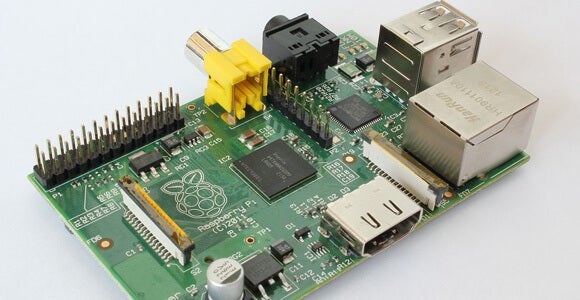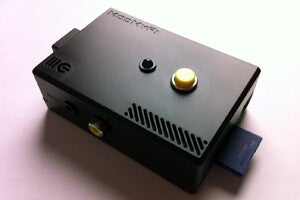 As computers grew smaller and more powerful over the last couple of decades, they also became sleek and pre-packaged, eroding the tinkering ethos that fueled many early computing innovations. As computer science became a more sought-after field of study for young people, those same young people knew less and less about what happened in the guts of their lithe little machines, according to the founders of the Raspberry Pi Foundation, who once read applications at Cambridge University.
As computers grew smaller and more powerful over the last couple of decades, they also became sleek and pre-packaged, eroding the tinkering ethos that fueled many early computing innovations. As computer science became a more sought-after field of study for young people, those same young people knew less and less about what happened in the guts of their lithe little machines, according to the founders of the Raspberry Pi Foundation, who once read applications at Cambridge University.
With the Raspberry Pi, a programmable credit card-sized computer, the British computer scientists sought to rekindle garage innovation. What would young students do with the power of computing if they could buy a computer for just $35 and access all of its parts?
Well, for many young people and several tech publications, the question has morphed into “Just how geeky would a tech geek be if a tech geek could hack tech?” And the answer, as one could have guessed, was pretty darn geeky. The device has been devoted to geek-culture activities from brewing beer to entertaining cats.
One nostalgic programmer recently made tech news by using a Raspberry Pi to power a clone of the 1980s Commodore 64 computer. Creative and nerdy, to be sure, but are there Pi projects with some social benefit?
Raspberry Pi was designed to expand access to hands-on computing among young people, so we must first mention that it has. Google — not motivated entirely by altruism, one suspects — donated 15,000 Pi computers to secondary schools in the UK. The Raspberry Pi Foundation is offering seminars for British teachers on how to teach computing with its devices.
 Some have sought to extended the computing access Raspberry Pi offers, by using it to power an internet server. Others have gone further, showing how to connect household items to the local network to create a tiny personal Internet of Things. Hackers can control lights and automatic garage doors, for example.
Some have sought to extended the computing access Raspberry Pi offers, by using it to power an internet server. Others have gone further, showing how to connect household items to the local network to create a tiny personal Internet of Things. Hackers can control lights and automatic garage doors, for example.
These personal use cases don’t do much directly to help make the world a better place, but they may well lead to ways to use home automation technology to reduce energy consumption.
A couple of students at the University of Scranton are using Raspberry Pi computers to dynamically reposition PV solar panels to capture the maximum amount of sunlight each day. They’ve sent two prototype computerized solar panels to Uganda where one will power a water pump and the other will form the basis as a science experiment for students.
 Computer technology is also a powerful tool with which to accommodate the needs of the disabled, but the combination of high cost and specialized consumer markets keeps many of these products from having the influence they could. In this domain, Raspberry Pi could be a game-changer. One developer used the device as the basis of a simple audiobook reader with a single button for ease of use.
Computer technology is also a powerful tool with which to accommodate the needs of the disabled, but the combination of high cost and specialized consumer markets keeps many of these products from having the influence they could. In this domain, Raspberry Pi could be a game-changer. One developer used the device as the basis of a simple audiobook reader with a single button for ease of use.
And then there was the Kansas University competition for clever use cases for the Raspberry Pi. The winner, Rayyan Kamal, described using the tiny computers, connected to the ground, to gauge soil quality and weather. A global network of the devices would provide a powerful tool that could be used by farmers to determine what to grow in the changing climate. Biologists could also use such a network to track shifting ecosystems.
Precision agriculture — in which all the nuances even of a given field are considered when growing food crops — has been heralded by some as our best answer to the challenges posed by increasingly unpredictable and extreme weather patterns. Surveying drones have often been proposed as the way to deliver customized care to each individual plant. But Kamal’s $35 sensors seem like a better way to get data on the growing conditions as opposed to drone-mounted cameras backed by complex artificial intelligence systems to convert photos into irrigation and fertilization recommendations.
Several years and a couple million units into the Raspberry Pi project, it’s not yet clear how much the small, affordable machines will drive projects that improve qualify of life for those who need it most. But it’s encouraging to see a number of ideas for how they could.
Photos: Jwrodgers via Wikimedia Commons, Tim Walker via Flickr, Michael Clemens


